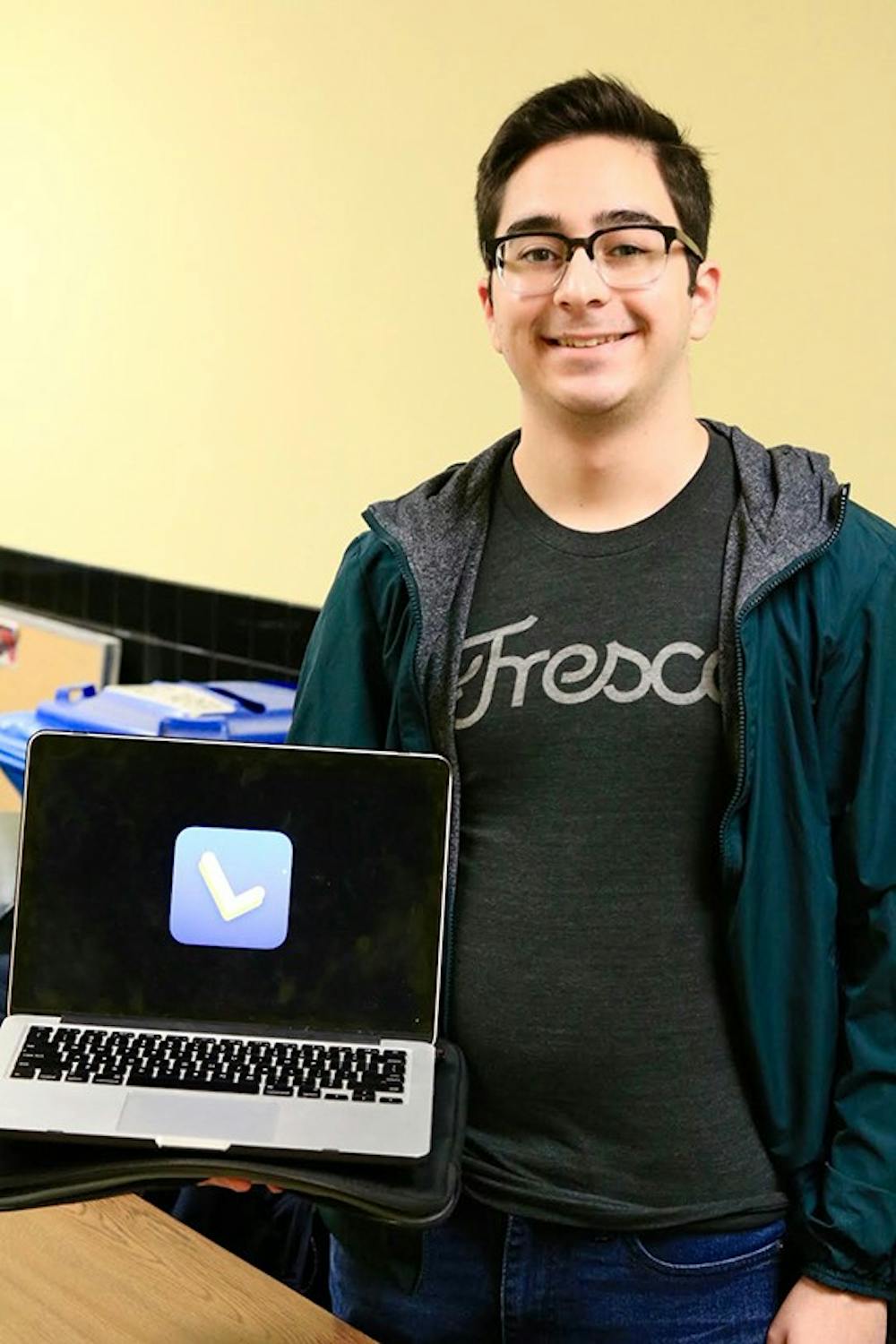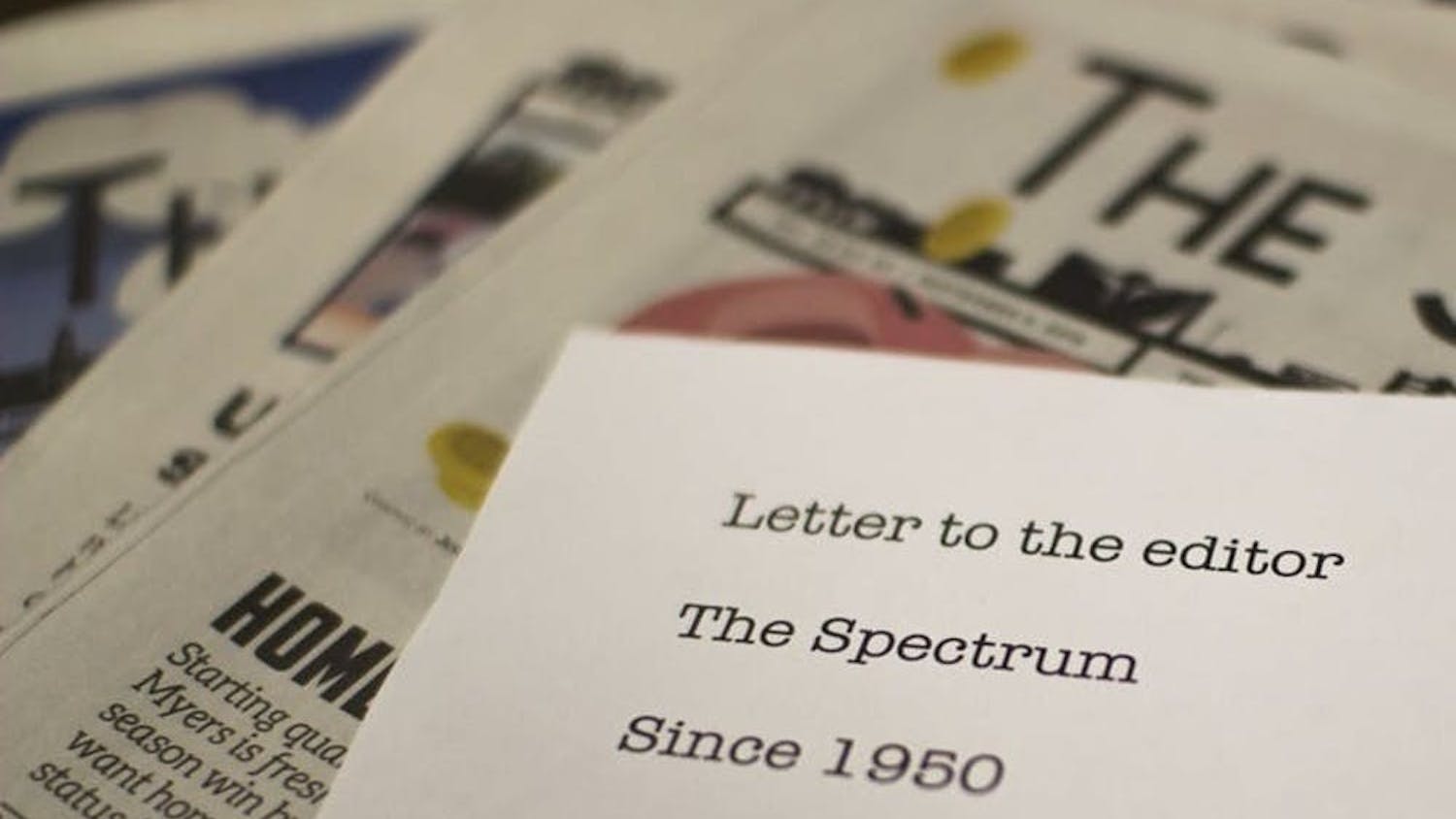Arthur De Araujo has improved on pen and paper with his most recent iOS application, Lecture Buddy.
The app translates the lecture into text by using a continuous speech recognition program. Students can enter keywords to look for in the text, such as “important,” “remember” or any word of choice.
Once the app is done translating, it locates where in the text the professor says a specific word and highlights the sentence or paragraph.
This allows students to see what sections of the lecture are most important and contain specific words to help them study.
“We’re still using pen and paper, which is ancient,” said De Araujo, a sophomore computer science major. “There has to be a better way.”
De Araujo came up with the idea in December and began production in January. He couldn’t find anything similar on the market and said he’s the first to incorporate speech recognition and the highlighting of keywords.
Liam Gensel, a junior computer science major, has also worked on past projects with De Araujo and uses Lecture Buddy. He sees it as a useful tool.
“It's something that I wish I had earlier on in my college career, especially in big gen-ed classes where you just get bombarded with information,” Gensel said.
“I love being able to record my lectures and if I miss something important, the app will pick up on it for me. Personally, I still take notes on pen and paper, but I use the app to supplement that, rather than replace it.”
De Araujo said Lecture Buddy is meant for those who may have problems paying attention in class, but its goal isn’t to deter students from paying attention. He doesn’t want the app to replace notetaking completely, but he hopes that it gives students the boost they need, especially students with developmental disorders.
De Araujo submitted Lecture Buddy into the SPARK Mobile App Contest, a challenge to create an app that can help support individuals with autism spectrum disorder.
“I think Lecture Buddy definitely has the potential to support people with autism and that’s why I enrolled it [in the contest],” De Araujo said. “It can help students learn better and I also thought if they may have some attention problem this would help with that. They wouldn’t need to be as attentive while note taking.”
The app does still have problems.
Although the app itself runs smoothly, its speech recognition feature can occasionally be faulty. Lecture Buddy may pick up words incorrectly depending on the professor’s speech or other noise in the room.
The app works well in a silent room, but in a crowded lecture hall it may miss words or pick them up incorrectly with the iPhone’s built-in microphone. Attaching a better microphone to the phone can help minimize problems, according to De Araujo.
De Araujo also sees possible legal issues with the app as well, and fears students recording professors without consent. The app-maker still thinks it’s important to check in with an instructor before using Lecture Buddy in the classroom.
Declan Hopkins, a junior computer science major, has worked with De Araujo on past projects and sees the significance of his most recent.
“I think the app is a cool idea, and executed well,” Hopkins said. “I think it has the potential to help many students who have trouble taking meaningful notes.”
Lecture Buddy is available on the App Store for free.
Brenton Blanchet is the senior arts editor and can be reached at brenton.blanchet@ubspectrum.com

Brenton J. Blanchet is the 2019-20 editor-in-chief of The Spectrum. His work has appeared in Billboard, Clash Magazine, DJBooth, PopCrush, The Face and more. Ask him about Mariah Carey.





